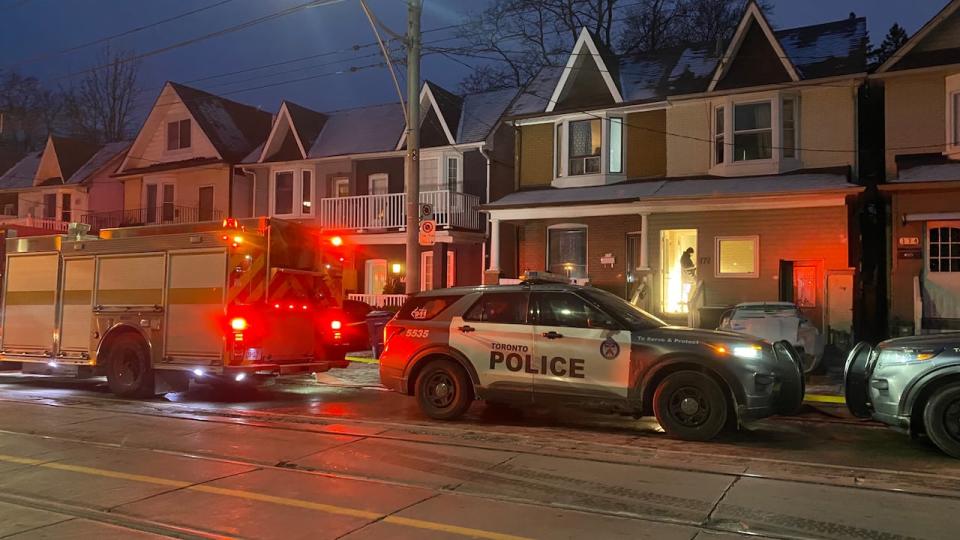Man killed in fatal rooming house fire remembered as 'kind-hearted' shelter worker

A man who died in a fatal rooming fire earlier this week is being remembered as a shelter worker who "dedicated his life to assisting those who were in need," according to a Toronto shelter organization.
In an email to CBC Toronto Friday, Dixon Hall described William Cachia as an "anchor" of many of the organization's programs, which include housing, employment, youth and senior services.
"William's sudden passing leaves a void that cannot be filled, and the loss will linger for quite some time," the statement reads.
"William was kind-hearted, supportive, well-loved, respected by clients and agency partners, and a staple presence in the shelter and respite programs. We share our heartfelt condolences to all those affected by this tragedy."
Cachia's death happened in a rooming house that the local councillor suspects was illegal. Tenants in the home reported to Toronto Fire Services that it didn't have working smoke alarms. His death comes more than a month before rooming houses are set to become regulated city-wide — something advocates say they hope puts an end to these kind of tragedies for good.

Toronto firefighters and police are pictured at the scene of a fatal fire in the east end that killed William Cachia on Thursday. (Paul Smith/CBC)
Firefighters were called to a semi-detached rooming house in the area of Gerrard Street East and Coxwell Avenue around 5:30 a.m. Thursday and arrived to find smoke coming from the residence. Cachia was the only victim out of six others who lived in the house.
A TTC bus was brought in to provide temporary shelter for the residents displaced. The Ontario Fire Marshal is set to investigate the origin and circumstances of the blaze alongside Toronto Fire and Toronto police.
Illegal rooming houses a concern, despite incoming bylaw
Coun. Paula Fletcher, who represents the area, said she's concerned that the rooming house appears to have been unlicensed and illegal.
"Unfortunately, with an illegal rooming house, all the requirements for fire protection aren't there," she said.
"Obviously this place has fallen through the cracks and there might be more out there."
Currently, rooming houses are only regulated in come parts of the city, such as the old City of Toronto, the old City of York, but not in places like North York, Scarborough and Etobicoke, Fletcher said.
After years of back and forth on the issue, city council passed a bylaw to make rooming houses legal throughout the city in December 2022. Changes to regulate rooming houses citywide, including consistent standards, regulatory oversight and effective enforcement, are underway and are set to kick in at the end of March.
"With a legal rooming house, there are fire doors, there are exit signs, there are smoke detectors, it's very much fire-proof. And that's one of the reasons why we want to take rooming houses and upgrade them to be legal, because they're important places for people to live that aren't on a big income," said Fletcher.
Mark Richardson, the lead of advocacy group HousingNowTO, said many essential service workers are living in rooming houses as a result of the housing crisis.
"You can see from an example like this that these unregulated units are much higher risk, but they're all that some people can afford," he said.
He's calling on all level of governments to build more housing units of all kinds in the city. But in the meantime, he hopes rooming houses become a safer place to live citywide when the new bylaw kicks in.
"I can only hope it will be the last fire we have because we won't have illegal rooming houses anymore," he said.


